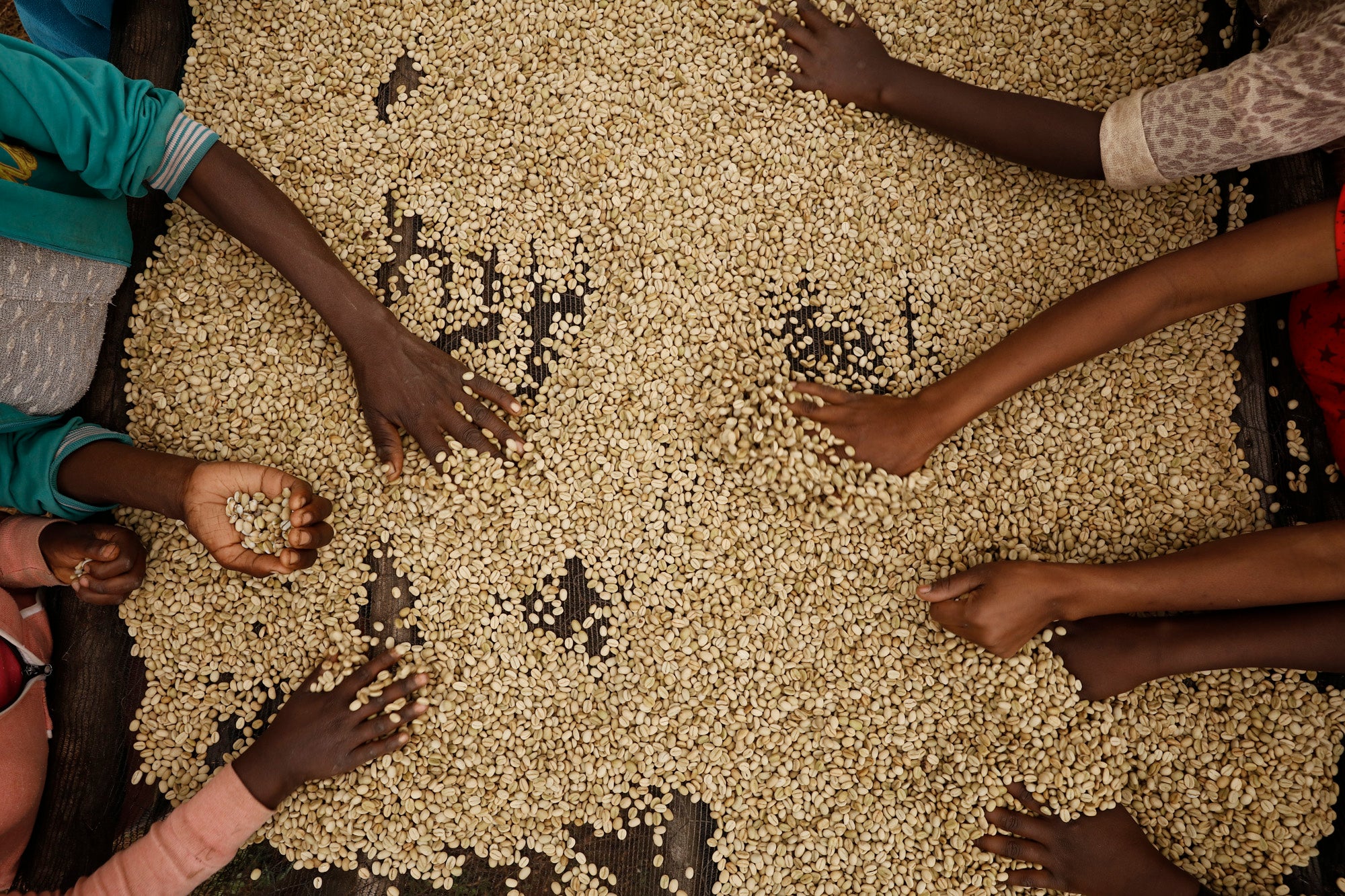
Flavour profile: This is a crisp, sweet, and delicate cup. The Typica varietal brings a lot of floral notes that shine through, favouring the sweet caramel character of Costa Rica, with bright notes of honeydew melon, bergamot and white florals.
Colour to describe flavour: Baby blue
Category: Curious
Producer and owner: Carlos Ureña Ceciliano with daughter Ana Ureña Ceciliano
Farm: Finca La Pira
Region: Tarrazú
City: Santa María de Dota
Farm size: 7 hectares
Altitude: 1650 masl
Harvest: Mid-January to February 2023
Varietal: Typica
Processing: Honey
Price Transparency: The FOB price paid for this coffee was 8,05 USD/lb
Don Carlos Ureña Ceciliano, who owns the La Pira farm in Dota, Terrazu, Costa Rica, is a unique producer. On his 7 hectares of land, he remains hyper-aware of what nature has provided him with and how he may use it to the fullest. For example, he creates his own micro-organisms for fertiliser and reuses byproducts from the processing station and dry mill to heat his home and fuel his depulper machine. On his farm, Carlos relies on fascinating mixture of science and biodynamic agriculture. Every morning he listens carefully to where the birds are singing, to gain insight into what's happening with his coffee trees. The location and behaviour of the birds can give him an indication of ripeness, flowering and even potential challenges in the plants.His knack for science and doing things his own way make him one of the most talented producers we know, and the reason La Pira appeared in the Cup of Excellence.
After inheriting the family farm, Carlos worked for many years as a certified organic coffee producer. However, he eventually realised doing so was not feasible for his farm. Organic coffee is good, but it is simply not possible for everyone. Because his yield was severely affected by leaf rust a few years back, Carlos was forced to look for alternative methods of protecting his crops that still satisfied the organic and biodynamic principles he holds so close to his heart. So now, instead of using chemicals to control the weeds, he relies on sheep to roam freely among the coffee plants and eat weeds (surprisingly they leave the coffee plants alone!). They also work as automatic and mobile 'fertilisation units' (nature’s a wonderful thing), which has eliminated the need for herbicides. This is yet another example of the clever thinking Carlos has about coffee.
This Typica varietal is white honey processed, which means that most of the pulp has been removed by pulping the coffee, but the mucilage has remained while drying, instead of washing it off as in the washed process. The mucilage is very sticky and honey-like, hence the term- Honey Processed. White honey just indicates how much of the mucilage is left on the bean, in this case less than 25%. Red honey being almost all of the mucilage is left on the bean, or about 75% of it.

































